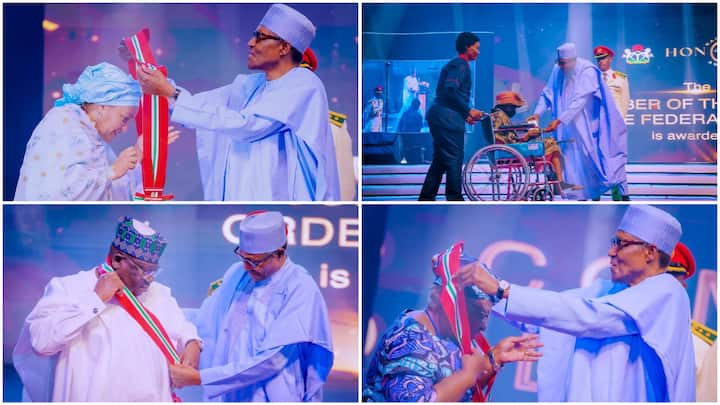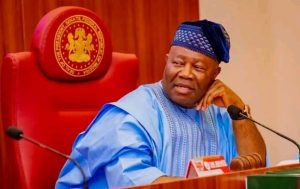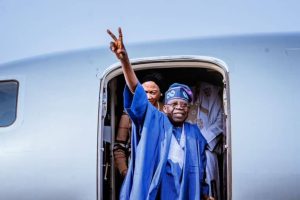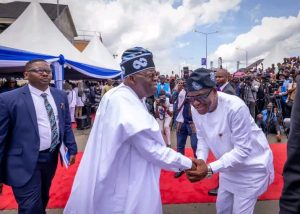On Tuesday, October 10, President Muhammadu Buhari conferred national honours on some Nigerians and friends of Nigeria (foreigners).
Notable among the awardees include Buhari’s late Chief of Staff, Abba Kyari, Governor Rotimi Akeredolu of Ondo state; Director General of the World Trade Organisation (WTO), Ngozi Okonjo-Iweala; Registrar of the Joint Admissions and Matriculation Board (JAMB), Ishaq Oloyede; the Minister of Works and Housing, Babatunde Fashola, among others.
See the full list below:
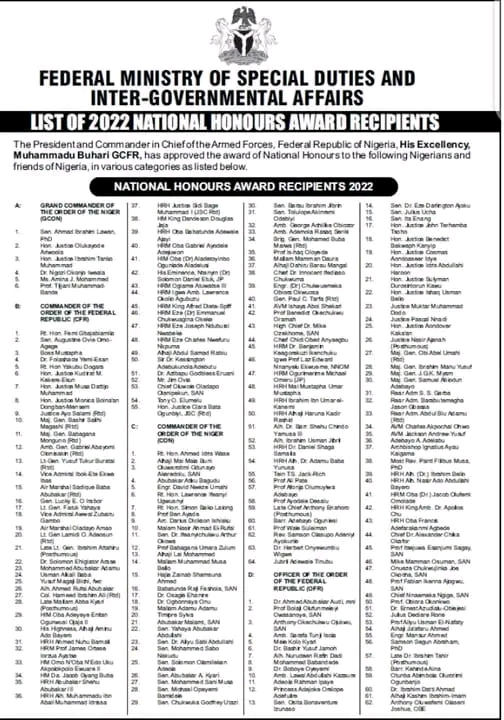
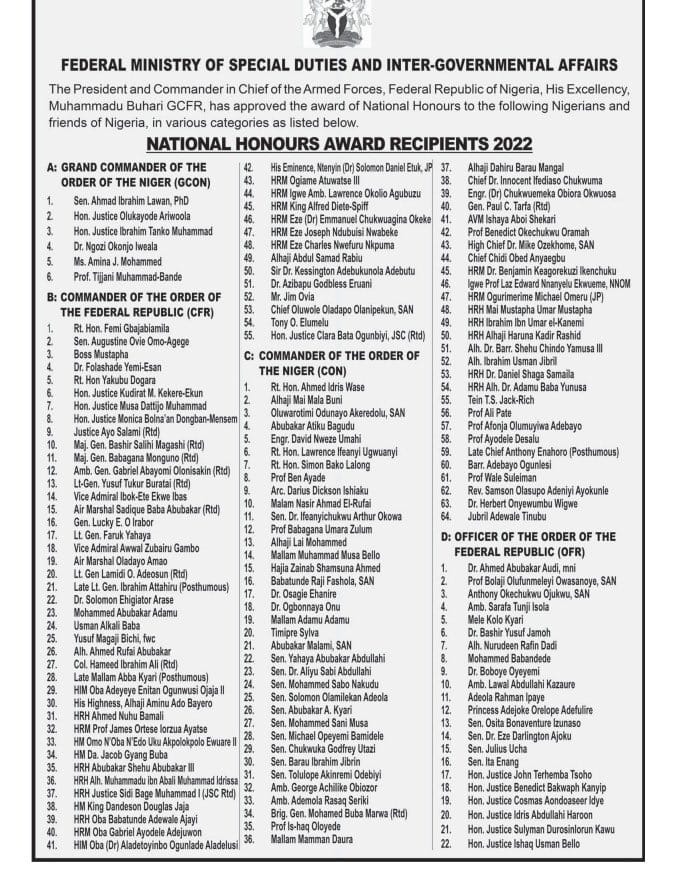
What are the national honours in Nigeria?
The tradition of conferring national honours on distinguished citizens started in 1964 during the era of Alhaji Tafawa Balewa with the enactment of National Honour Act 5 of 1964.
The Act, which retroactively took effect from October 1, 1963 (before it was established), empowers the president to honour deserving citizens who have contributed to the nation’s development and progress in any field of endeavour.
What are the categories of national honours in Nigeria?
There are eight categories, namely:
Grand Commander of the Order of the Federal Republic (GCFR)
Grand Commander of the Order of the Niger (GCON)
Commander of the Order of the Federal Republic (CFR)
Commander of the Order of the Niger (CON)
Officer of the Order of the Federal Republic (OFR)
Officer of the Order of the Niger (OON)
Member of the Order of the Federal Republic (MFR)
Member of the Order of the Niger (MON)
The highest honour is GCFR
GCFR is the highest honour in Nigeria and is believed to be meant for presidents and past Heads of State (though the Act does not say anything on this).
There are, however, two exceptions: Chief Obafemi Awolowo and Moshood Kashimawo (MKO) Abiola.
Awolowo received GCFR without becoming Head of State. President Shehu Shagari gave him that award for his outstanding service to Nigeria before and after independence.
Also, President Buhari, in 2018, announced the conferment of the GCFR on Moshood Kashimawo (MKO) Abiola, the presumed winner of the June 12, 1993 election.

